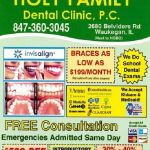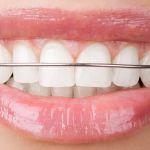Can Eating Cheese Prevent Cavities?
- Understanding Cavities
- Benefits of Cheese for Oral Health
- How Cheese Protects Tooth Enamel
- Scientific Research on Cheese and Cavities
- Best Types of Cheese for Oral Health
- Incorporating Cheese Into Your Diet for Healthy Teeth
1. Understanding Cavities
Cavities, also known as dental caries, are holes or decays in the tooth structure caused by the breakdown of tooth enamel due to acid produced by bacteria. When we consume sugary or acidic foods, bacteria feed on the sugar and produce acid that harms the enamel, leading to tooth decay. It's a common issue faced by many individuals, but the good news is that you can make dietary choices that can help prevent these problems.
2. Benefits of Cheese for Oral Health
When it comes to maintaining good oral health, the food you eat plays a crucial role. Cheese, especially varieties like cheddar, mozzarella, and Swiss, is considered an excellent food for preventing cavities. Cheese is rich in calcium, phosphate, and casein, which are essential for strengthening teeth and neutralizing acids in the mouth. By consuming cheese after meals, you can reduce the acidity in your mouth and provide your teeth with essential minerals to repair enamel.
3. How Cheese Protects Tooth Enamel
The tooth enamel is the protective outer layer of the tooth that shields it from decay. One of the key ways cheese helps protect tooth enamel is by stimulating saliva production. Saliva is essential for neutralizing the acids produced by bacteria in your mouth, which in turn helps maintain the integrity of your enamel. Furthermore, the calcium and phosphate in cheese help remineralize the enamel, strengthening it and making it more resistant to acids.
4. Scientific Research on Cheese and Cavities
Recent studies have shown that eating cheese may actually help prevent tooth decay. A study published in the "Journal of the American Dental Association" found that individuals who ate cheese after a meal had a significantly lower level of acidity in their mouth, leading to reduced enamel erosion. This suggests that cheese could play a beneficial role in neutralizing acids and protecting against cavities.
5. Best Types of Cheese for Oral Health
Not all cheeses are created equal when it comes to oral health. Some of the best options include:
- Cheddar: High in calcium and phosphate, cheddar is excellent for neutralizing acids and strengthening tooth enamel.
- Swiss: Another great choice, Swiss cheese is rich in calcium and has a lower acidity than many other cheeses.
- Mozzarella: This cheese has a mild flavor and contains the same beneficial calcium and phosphate that help protect your teeth.
- Gouda: Gouda is another cheese rich in calcium, and it contains vitamin K2, which helps in the absorption of calcium by the bones and teeth.
6. Incorporating Cheese Into Your Diet for Healthy Teeth
Including cheese in your diet is simple and delicious. You can enjoy cheese as a snack, add it to salads, sandwiches, or even pair it with fruits like apples and pears. Not only will you enjoy its flavor, but you'll also be giving your teeth a protective boost. However, it's important to consume cheese in moderation as part of a balanced diet, as too much dairy can lead to excess calorie consumption.
For optimal oral health, don't rely solely on cheese—combine it with regular brushing, flossing, and dental check-ups. A balanced diet, rich in fruits, vegetables, and whole grains, will also support your overall dental health.
Interested in exploring more ways to protect your teeth and enjoy a healthy smile? Visit Dentistry Toothtruth to learn more about how diet and dental care can keep your smile shining!







 Holy Family Dental Clinic4.0 (279 review)
Holy Family Dental Clinic4.0 (279 review) Ernstberger Orthodontics5.0 (326 review)
Ernstberger Orthodontics5.0 (326 review) South Jersey Dental0.0 (0 review)
South Jersey Dental0.0 (0 review) Lassin Dentistry5.0 (200 review)
Lassin Dentistry5.0 (200 review) Minnesota Orthodontics - Chanhassen5.0 (27 review)
Minnesota Orthodontics - Chanhassen5.0 (27 review) Harmony Dental Health4.0 (259 review)
Harmony Dental Health4.0 (259 review) The Importance of Oral Health Education During Pregnancy for a Healthy Pregnancy
The Importance of Oral Health Education During Pregnancy for a Healthy Pregnancy Best Tips for Brushing Your Teeth Properly for Healthy Gums: Essential Techniques for Oral Health
Best Tips for Brushing Your Teeth Properly for Healthy Gums: Essential Techniques for Oral Health Why Skipping Dental Checkups Can Lead to Bigger Oral Health Problems
Why Skipping Dental Checkups Can Lead to Bigger Oral Health Problems Advantages of Porcelain Dental Restorations
Advantages of Porcelain Dental Restorations How Can Diabetes Cause Tooth and Gum Problems? Preventing and Managing Oral Health Issues
How Can Diabetes Cause Tooth and Gum Problems? Preventing and Managing Oral Health Issues Healthy Habits for Promoting Good Oral Health and Hygiene: Tips for a Healthy Smile
Healthy Habits for Promoting Good Oral Health and Hygiene: Tips for a Healthy Smile